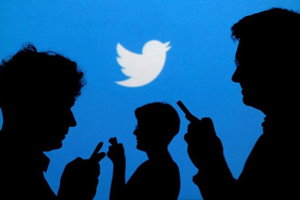Mar 24: Twitter is exploring a paid subscription model for TweetDeck for professionals, including journalists, marketers, etc. In this model, they will be offered an ad-free experience along with more data insights and analysis around their tweets. Details about the new paid plan were first tweeted out by Andrew Tavani on his Twitter account (@andrewtavani).
 Tavani has put out detailed screenshots, which give a glimpse of what this premium plan of TweetDeck looks like. Twitter has also confirmed it is conducting a survey with some of these users to figure out how this is received.
Tavani has put out detailed screenshots, which give a glimpse of what this premium plan of TweetDeck looks like. Twitter has also confirmed it is conducting a survey with some of these users to figure out how this is received.
According to Tavani"s tweets, Twitter is looking at the idea of a monthly subscription fee in the survey, which is around $19.99. The list of features includes, the ability to manage multiple Twitter accounts across team members, an ad-free experience, and analysis for understanding topics and conversations on Twitter. It will work on both desktop and mobile.
A Twitter spokesperson issued this statement, “Twitter is conducting a survey to assess the interest in a new, more enhanced version of Tweetdeck. We regularly conduct user research to gather feedback about people"s Twitter experience and to better inform our product investment decisions, and we"re exploring several ways to make Tweetdeck even more valuable for professionals.”
It is clearly aimed at news professionals, given how Twitter is still a popular medium for discussing news events, and even for breaking news. Features also include: exclusive news alerts and summaries, content management tools such as bookmarks, to-do-lists and "save for later". Twitter will also offer these professionals the ability to create custom audience lists based on interest, region, etc.
For Twitter, which is struggling with revenue and user base, this could be a new source of revenue model. While Facebook has steadily gained favour as the preferred platform for publishers, Twitter still has a host of issues, which it has been trying to fix.
The "survey" by Twitter says this paid feature will let customers get “advanced audience insights & analytics,” along with alerts and trends. The paid model of TweetDeck will have a customisable dashboard, where all of this data will be represented.
For Twitter, the paid model could be a way of giving its premium customers some sense of the kind of content and conversations being shared on the platform. Whether this paid model will prove to be indispensable to its customers, remains to be seen.





Comments
Add new comment